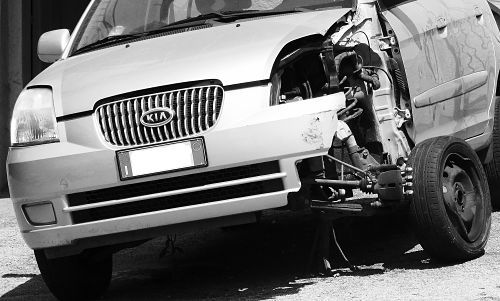
Very few car accident cases end up in court. Instead, over 90% of personal injury disputes will settle. However, going to court is sometimes a possibility if the person who struck you refuses to settle for a fair amount, or if he denies that he is responsible for the crash.
In this article, we’ll give you the highlights of what to expect in a car accident lawsuit. If you need legal representation, contact an Austin pedestrian accident attorney today.
Pre-Trial Hearings
Unless you are in small claims court, you can expect many hearings before your trial. These hearings serve different purposes. You might have a dispute around what documents each side needs to hand over to the other. A judge needs to hear argument and then decide.
There might also be a summary judgment hearing. A judge can grant summary judgment when the facts are in the favor of one side and there is no chance the other side could win. If you win on summary judgment, you don’t need to go to trial. Summary judgment is rare in car accident cases, but your attorney might need to defend against the other side’s summary judgment motion or submit one of her own.
Trials
In a trial, both you and the defendant get to present evidence and witnesses. As the person bringing the lawsuit, you will present evidence first.
The evidence your attorney uses will depend on the circumstances. For example, witnesses can testify about what happened, and you can introduce photographs. Whoever took a photograph will need to testify about when they took it. After your lawyer presents evidence, the defendant gets a chance to put on a case, which can include presenting witnesses and other evidence.
Testifying in Court
If your case gets to trial, then you might have to testify. You will talk about many of the same things you discussed in your deposition, such as:
- How the accident unfolded
- What you did in the moments before the accident and after
- The extent of your injuries
The defendant’s lawyer can also cross-examine you, which could be stressful. Lawyers handle cross-examination differently. Some are very aggressive and will try to trip you up while others might ask only a few questions. Everything depends on the lawyer’s theory of the case.
If you are nervous, your lawyer can help you prepare for your testimony in the same way you were prepared for your deposition. Remember to always listen to the question being asked and don’t volunteer any information. If you need a break, ask the judge, especially if you are getting emotional.
Verdict
You might decide to have a bench trial, which means the judge will decide who wins, but you most likely will have a jury trial. After the lawyers make final arguments, the jury withdraws to deliberate. If you win the case, you get a “judgment,” which is a piece of paper. Ultimately, it is up to you to get the defendant or his insurer to pay you.
Contact a Trusted Car Accident Lawyer
Car accident trials are stress. Fortunately, if you hire the right lawyer, you will be in safe hands. Speak to Robert Littlefield Buford III, Attorney at Law, to discuss your case. Our firm offers a free consultation.




Recent Comments